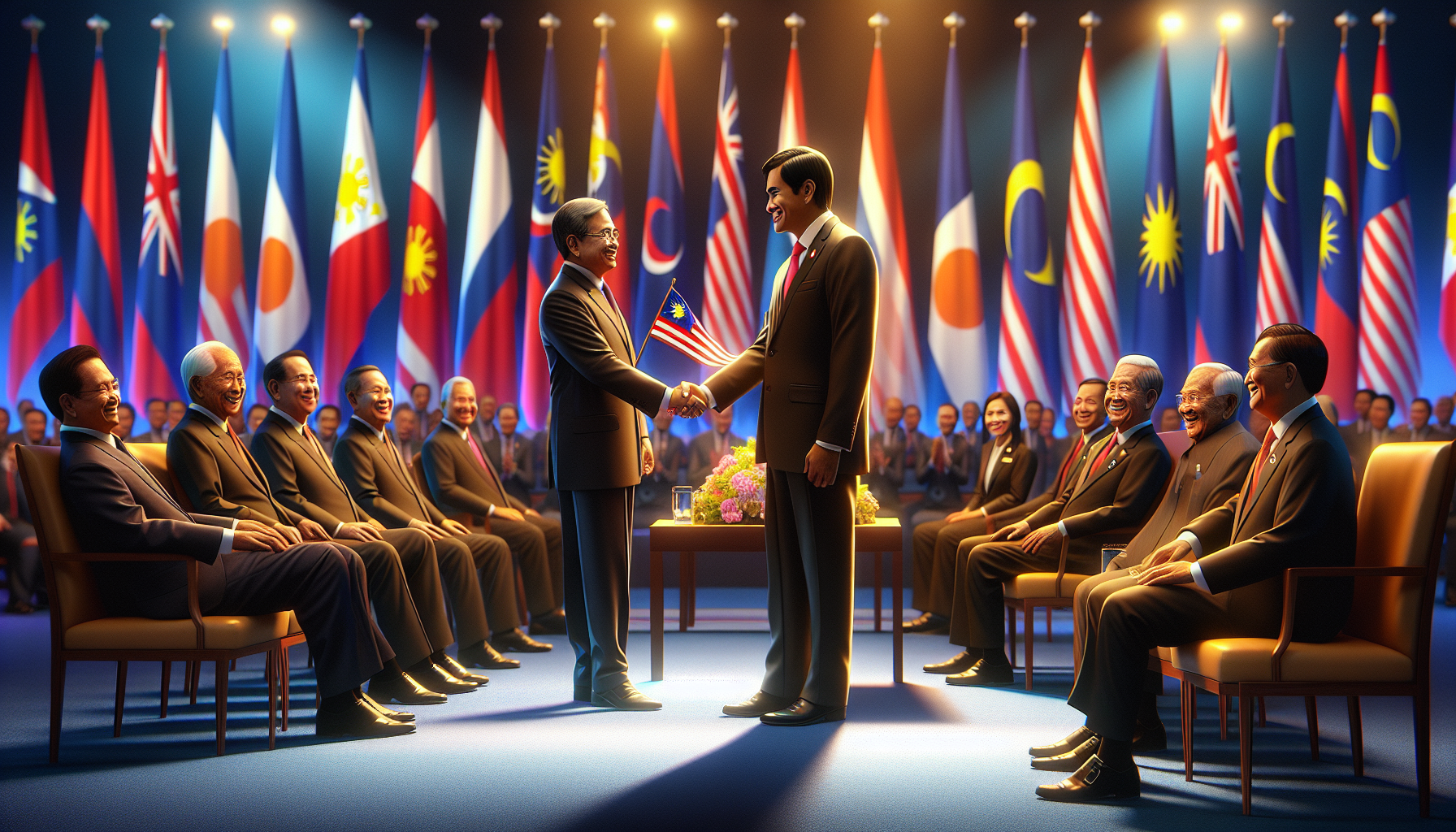The Philippines officially assumed the chairmanship of the Association of Southeast Asian Nations on October 28, 2025, at the close of the 47th ASEAN Summit in Kuala Lumpur, Malaysia. President Ferdinand Marcos Jr. received the handover from Malaysian Prime Minister Anwar Ibrahim, setting the stage for Manila to host key meetings in 2026. Marcos expressed hopes to invite Chinese President Xi Jinping to Manila if South China Sea code of conduct talks conclude successfully by then.
The handover occurred during the closing ceremony of the 47th ASEAN Summit, marking the end of Malaysia's tenure as chair. Malaysian Prime Minister Anwar Ibrahim passed the responsibility to Philippine President Ferdinand Marcos Jr., who will lead the bloc through a year of hosting hundreds of meetings, including the 48th and 49th ASEAN summits. The Philippines has allocated P5.4 billion for preparations in 2025 and P17.5 billion for full hosting duties in 2026.
Marcos highlighted the significance of advancing negotiations for a Code of Conduct (COC) in the South China Sea, which began in early 2025. He stated, “I would certainly invite him, that’s for sure,” referring to inviting Xi Jinping to Manila if talks conclude by 2026, the target year under Philippine leadership. Marcos added that such a visit would signal “serious progress” in the discussions, which cover the COC's scope, its relation to the 2002 Declaration on the Conduct of Parties, and whether it will be legally binding.
The South China Sea remains a flashpoint, with the Philippines asserting its 200-nautical-mile exclusive economic zone, including Scarborough Shoal controlled by China since 2012. China claims nearly the entire sea, a position invalidated by a 2016 arbitral award it rejects. Marcos has criticized Chinese actions, such as water cannon use near Pag-asa Island, but emphasized that territorial issues do not define bilateral ties. He noted ongoing efforts to boost trade and tourism, including reopening an e-Visa system for Chinese visitors.
As new chair, the Philippines faces challenges inherited from Malaysia, including Myanmar's junta non-compliance with the five-point consensus, border tensions resolved between Cambodia and Thailand, and global issues like US tariffs and climate change. Marcos affirmed commitment to the Declaration on the Conduct of Parties and UNCLOS, stating at the East Asia Summit on October 27, “The Philippines will continue to remain firm, calm, and resolute.” The chairmanship rotates alphabetically, skipping Myanmar's 2027 slot due to its 2023 exclusion.

